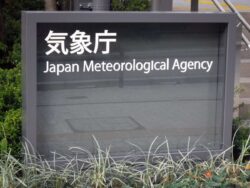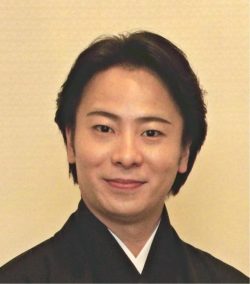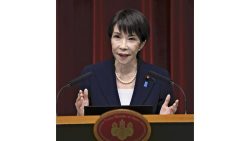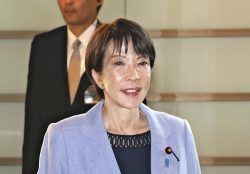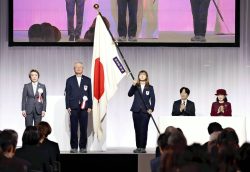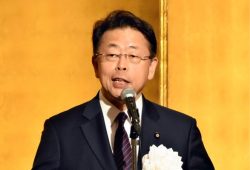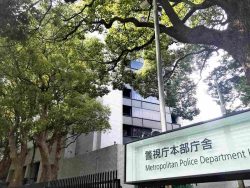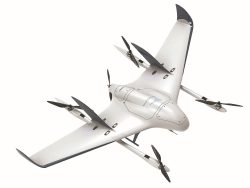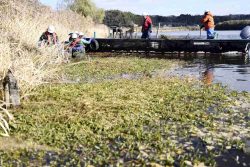18:01 JST, March 28, 2022
Activities to promote peace are growing at elementary and junior high schools in response to Russia’s invasion of Ukraine. As some students have roots in these countries, teachers have explored ways to take up the issue in their classrooms in a way that does not one-sidedly criticize either country.
“Let’s fold paper cranes with all our hearts,” a member of the student council said in a classroom at Awaji Junior High School in Higashi-Yodogawa Ward, Osaka, on the morning of March 16, and the second-year students began to fold.
A group of representatives from clubs and the student council came up with this paper crane project to send a message of peace. From March 15, all the students at the school took time in the morning and afternoon to fold a total of 3,000 paper cranes to send them to the Russian and Ukrainian embassies in Japan.
“I was heartbroken when I heard the news that children of my generation had died,” said Yuika Takeda, who is 14. “Russian people must also have complicated feelings. I can’t do much, but I want to show them that my heart is with those suffering.”
At Yuhigaoka Junior High School in Tennoji Ward in the city, members of its student council exchanged opinions and drafted the emergency message, “We oppose any war and call for an immediate ceasefire.” This message has been translated into Russian and Ukrainian and sent to the embassies of both countries by mail.
“I hope that the students will learn the preciousness of peace by considering it a problem that is close to them, not an event in a distant country,” said Koken Kawabata, a social studies teacher who supported the initiative.
Some schools have held fundraising activities to support Ukraine. Fifth-year students at the Wakayama University-affiliated elementary school in Wakayama City carried out a fundraising drive in front of the main school gate on March 14 and 15. They collected a total of about ¥130,000 from local residents and others. The money was to be donated to the Ukrainian Embassy through the Wakayama prefectural government.
Care must be taken when international issues are brought up in the classroom. If teachers overly emphasize which party is right or wrong, that could lead to prejudice and slander against certain countries.
Dozens of students with roots in Russia and Ukraine are enrolled in elementary and junior high schools in Osaka. With the Ukrainian crisis being reported extensively by the media, some parents have expressed concern about allowing their children to go to school. The city’s board of education has asked schools to strengthen their monitoring.
Nobuyuki Tsuji, the principal of Kita-Tsumori Elementary School in Nishinari Ward, said, “We try to have students think about the impact of a war on people, rather than criticizing the government or politics.”
During one class for sixth-year students, newspaper articles and video clips of news programs on the Ukrainian crisis were used. Some students were critical of Russia, but their teacher encouraged them to discuss the feelings of both countries’ people and soldiers and how the war could be stopped. One student said, “I don’t think they really want to fight,” while another said, “I prefer a solution through discussions.”
Yuko Nakayama, a social studies teacher at Azuma Junior High School in Tsukuba, Ibaraki Prefecture, said she limits herself only to providing information from textbooks and other educational materials when she receives questions in class. She urged her students to have a sense of balance, saying, “Social media has been flooded with various information, so you have to discern the truth.”
According to Hisaaki Takeuchi, an associate professor at Tokyo Women’s Christian University who specializes in peace studies, the new course of study encourages a wide variety of perspectives to be taught regarding social and global situations. He said taking up such issues as the Ukrainian situation provides students with an opportunity to become aware of the preciousness of daily life, which is taken for granted.
“Teachers are urged to scrutinize whether the information is reliable and ask children how they feel about the war if they think about it from the perspectives of both countries’ people,” Takeuchi said.
"Society" POPULAR ARTICLE
-

Tokyo Zoo Wolf Believed to Have Used Vegetation Growing on Wall to Climb, Escape; Animal Living Happily after Recapture
-

JAL, ANA Cancel Flights During 3-day Holiday Weekend due to Blizzard
-

Snow Expected in Tokyo, Neighboring Prefectures from Jan. 2 Afternoon to Jan. 3; 5-Centimeter Snow Fall Expected in Hakone, Tama, and Chichibu Areas
-
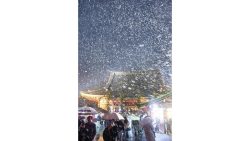
Tokyo, Yokohama Observe First Snowfall of Season; 1 Day Earlier than Average Year
-

M6.2 Earthquake Hits Japan’s Tottori, Shimane Prefectures; No Tsunami Threat (Update 4)
JN ACCESS RANKING
-

Japan Govt Adopts Measures to Curb Mega Solar Power Plant Projects Amid Environmental Concerns
-

Core Inflation in Tokyo Slows in December but Stays above BOJ Target
-

Major Japan Firms’ Average Winter Bonus Tops ¥1 Mil.
-

Tokyo Zoo Wolf Believed to Have Used Vegetation Growing on Wall to Climb, Escape; Animal Living Happily after Recapture
-

JAL, ANA Cancel Flights During 3-day Holiday Weekend due to Blizzard


